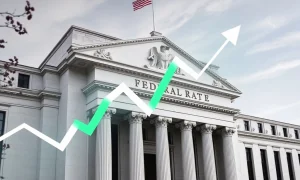This week’s crucial inflation report could dramatically reshape your financial landscape, potentially affecting everything from grocery bills to retirement savings. Economists worldwide await this pivotal data release with heightened anticipation.
Understanding the Inflation Report’s Significance
The upcoming inflation report serves as a critical economic indicator. This comprehensive data measures price changes across consumer goods and services. Consequently, it directly influences Federal Reserve policy decisions. Moreover, it affects interest rates and borrowing costs nationwide.
Immediate Impacts on Consumer Spending
Higher inflation typically reduces purchasing power significantly. Consumers immediately feel the effects through:
- Increased grocery costs for essential items
- Higher gas prices affecting transportation budgets
- Rising utility bills straining household finances
- Elevated housing costs impacting rent and mortgages
Long-Term Financial Consequences
Persistent inflation erodes savings value over time. Retirement accounts lose purchasing power gradually. Investment strategies often require adjustment accordingly. Additionally, wage growth rarely keeps pace with inflation.
Market Reactions and Investment Strategies
Financial markets respond quickly to inflation data releases. Stock prices frequently fluctuate based on report outcomes. Bond yields typically move inversely to stock performance. Investors should monitor these developments closely.
Protecting Your Financial Future
Several strategies can mitigate inflation’s impact effectively. Diversifying investments remains crucial for protection. Considering inflation-protected securities provides additional security. Regularly reviewing budgets helps maintain financial stability.
FAQs: Inflation Report Concerns
How often does the government release inflation reports?
The Bureau of Labor Statistics publishes monthly Consumer Price Index reports. These typically release around the 10th of each month.
What constitutes a problematic inflation rate?
Most economists consider 2% annual inflation healthy. Rates exceeding 3% typically raise concerns among policymakers.
How does inflation affect interest rates?
The Federal Reserve often raises interest rates to combat high inflation. Higher rates make borrowing more expensive for consumers.
Can inflation reports predict recession risk?
While not definitive predictors, sustained high inflation often precedes economic slowdowns. Economists watch trends rather than single reports.
How should retirees adjust to high inflation?
Retirees should consider inflation-protected investments. Reviewing withdrawal rates and expenses becomes increasingly important.
Does inflation affect all products equally?
Inflation impacts sectors differently. Essential items like food and energy often experience sharper price increases.






